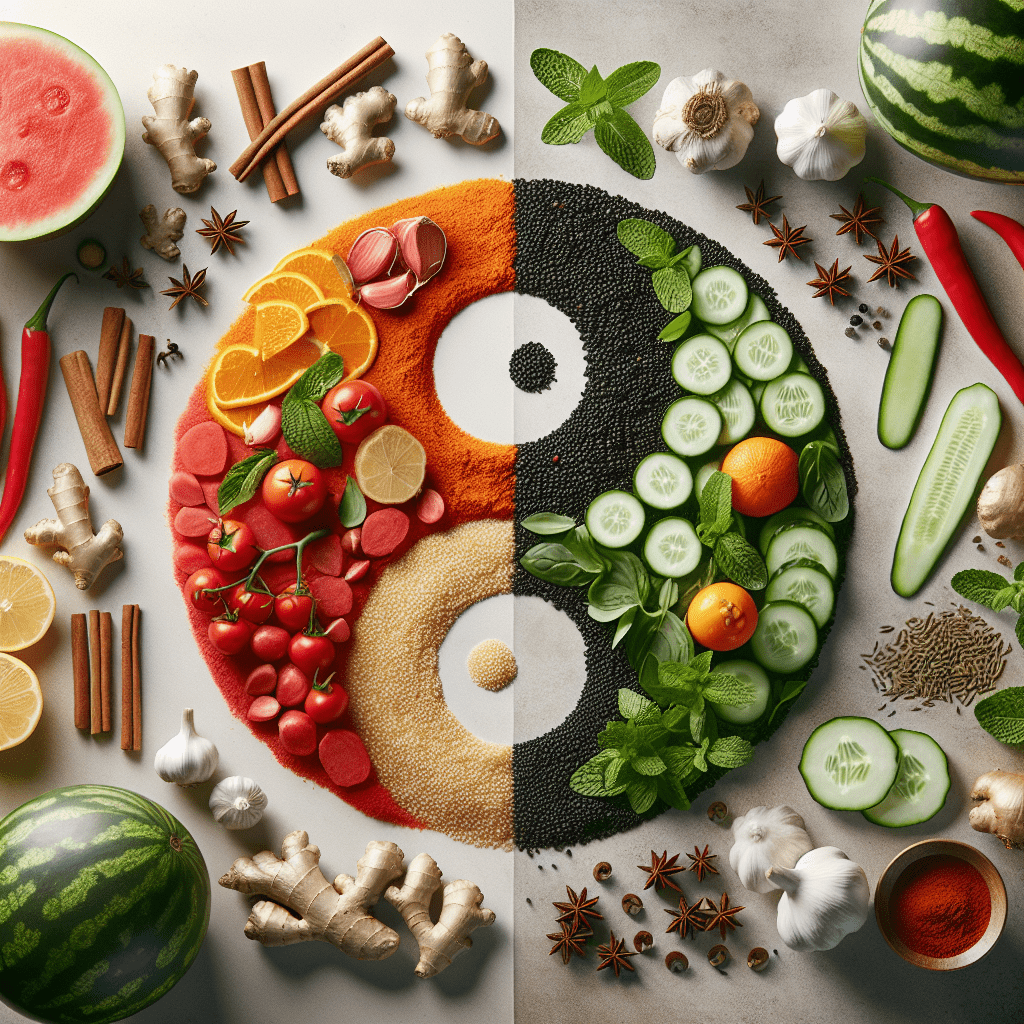Have you ever heard the phrase “you are what you eat”? It turns out, this old saying carries more wisdom than we might have realized. Across the country, a powerful movement is gaining momentum, one that views your dinner plate not just as a source of enjoyment, but as a critical tool in preventing and treating disease. This concept—food as medicine—isn’t new, but its integration into our modern healthcare system represents a revolutionary shift in how we approach wellness.
The idea is beautifully simple: the foods we consume directly impact our health outcomes. While many of us intuitively understand this connection, our healthcare systems have been slow to fully embrace nutrition as a cornerstone of treatment and prevention. That’s where the Food is Medicine Coalition comes in—a collective of passionate advocates working to transform how we think about the relationship between our forks and our well-being.
Imagine a healthcare system where your doctor prescribes specific foods alongside—or sometimes instead of—medications. Where insurance covers nutritious meals tailored to your unique health needs. Where hospitals serve healing foods that complement medical treatments. This isn’t a far-off dream; it’s becoming reality thanks to the tireless efforts of food as medicine champions nationwide.
Advocacy in Action: The Power of Collective Voices
At the heart of this movement is the Food is Medicine Coalition, a network of organizations united by a shared vision: integrating nutritional interventions into healthcare delivery. These aren’t just idealistic dreamers—they’re practical change-makers developing programs, conducting research, and influencing policy to make food-based healthcare interventions accessible to those who need them most.
“Our goal is to advocate for public policy that supports access to food and nutrition services for people with critical and chronic illnesses,” explains the Food is Medicine Coalition on their mission. What makes their approach unique is the recognition that nutritional support isn’t a one-size-fits-all solution. Their programs range from medically tailored meals delivered to homes of chronically ill patients to grocery programs providing fresh produce with nutritional education.
The coalition’s work isn’t happening in isolation. Organizations like the Food is Medicine Massachusetts Alliance (FIMMA) are building statewide networks to promote communication and collaboration between food as medicine stakeholders. Their goal? To serve as a resource and partner to decision-makers, ensuring that nutritional interventions become an integral part of healthcare planning and delivery.
What’s particularly striking about these advocacy efforts is their focus on sustainability. Rather than creating temporary programs that disappear when funding runs out, the Food is Medicine Coalition aims to build lasting infrastructure and secure permanent funding pathways through healthcare systems. They recognize that for food as medicine to truly transform healthcare, it must become embedded in the system itself—not treated as an optional add-on.
From Hospital to Home: Integration in Action
So what does this integration actually look like in practice? Across the country, innovative healthcare providers are finding ways to incorporate food-based interventions into their treatment plans.
Some hospitals now employ chefs alongside dietitians to create delicious, healing meals that patients actually want to eat. Others have established “food pharmacies,” where patients can fill “prescriptions” for healthy groceries right in the healthcare facility. Forward-thinking medical centers have even planted gardens on their grounds, using them for both food production and educational opportunities.
The Food is Medicine Coalition member agencies have been pioneering medically tailored meals for nearly four decades. These aren’t just healthy meals—they’re specifically designed to address the nutritional needs associated with particular health conditions. A patient with diabetes receives different meals than someone recovering from cancer treatment or managing kidney disease. These approaches form the core of therapeutic diets that are transforming healthcare.
Dr. Sarah Martinez, a physician at a community health center in Boston, has witnessed the impact firsthand: “When we started prescribing medically tailored meals to our patients with uncontrolled diabetes, we saw more improvement in three months than we had seen with medication adjustments over years. Their blood sugar levels stabilized, and many reported feeling better than they had in decades.”
Of course, implementing these programs doesn’t come without challenges. Healthcare systems face barriers ranging from limited funding streams to lack of nutrition education among providers. A 2022 survey of medical schools found that fewer than 25% require even a single dedicated nutrition course. How can doctors prescribe food as medicine when they’ve received minimal training in nutrition themselves?
Despite these hurdles, successful programs have identified key facilitators for integration: strong leadership commitment, dedicated staff positions focused on nutritional interventions, and partnerships with community organizations already doing food-related work.
Building Bridges: Healthcare and Community Connections
Perhaps the most promising aspect of the Food is Medicine Coalition’s approach is its emphasis on collaboration between healthcare providers and community resources. Rather than trying to build entirely new systems from scratch, successful programs create bridges between existing healthcare infrastructure and community food resources.
For example, healthcare systems are forming partnerships with food banks to enhance access to nutritious options for vulnerable populations. One innovative program in California connects hospital discharge planners directly with local meal delivery services, ensuring patients return home to nourishing foods that support their recovery.
These collaborations extend to policy advocacy as well. The Food is Medicine Coalition has been instrumental in pushing for legislative changes that incorporate food therapy into Medicaid and other programs serving underserved populations. Their advocacy helped secure provisions in the 2018 Farm Bill that established a produce prescription pilot program, allowing healthcare providers to “prescribe” fruits and vegetables to low-income patients with diet-related conditions.
More recently, advocates celebrated the introduction of the Medically Tailored Meals Delivery Act, which aims to help initiate, implement, and expand interventions that integrate food as a key component of medical care. As one supporter put it, “Scientific studies show that food is medicine programs incorporating healthy food into health care hold great promise to address the rising incidence and cost of diet-related chronic health conditions.” This integration exemplifies modern nutrition and diet therapy approaches.
These policy wins don’t happen overnight. They’re the result of persistent education and advocacy efforts that help legislators understand the profound connections between food access, nutrition quality, and healthcare outcomes—particularly for our most vulnerable community members.
Measuring Impact: Beyond Anecdotes to Evidence
While stories of individual transformation are powerful, the Food is Medicine Coalition knows that systemic change requires solid evidence. That’s why they’re leading the field in food is medicine research, gathering data on both health outcomes and economic impacts.
The results are compelling. Studies of medically tailored meal programs have shown:
- 16% reduction in healthcare costs
- 50% decrease in hospital admissions
- 72% fewer nursing home admissions
- Significant improvements in medication adherence and quality of life
For every dollar invested in these programs, healthcare systems save between $2 and $4 in reduced medical costs. As one healthcare administrator joked, “It turns out, an apple a day really can keep the doctor away—and save us thousands in emergency room visits!”
But the benefits extend beyond dollars and cents. Communities with robust food as medicine programs report stronger social connections, reduced food insecurity, and improved mental health outcomes. When people gather around nutritious food—whether in community kitchens, garden projects, or nutrition education classes—they build relationships that support overall wellbeing.
As Maria Gonzalez, a participant in a community-based food as medicine program, shared, “Before, I was just taking pills and feeling terrible. Now I’m cooking with vegetables I never tried before, my blood pressure is normal for the first time in years, and I’ve made friends with other people in the cooking class. My doctor is amazed, but I’m not surprised. Good food brings healing in more ways than one.”
A Future Where Food Heals: The Path Forward
As we look toward the future of healthcare, the vision promoted by the Food is Medicine Coalition offers tremendous hope. Imagine a system where nutrition is not an afterthought but a foundation of care. Where doctors are as knowledgeable about food as they are about pharmaceuticals. Where healing begins in the kitchen as much as in the clinic.
This vision aligns beautifully with Eastern medical traditions that have recognized the healing power of food for thousands of years. In traditional Chinese medicine, for example, foods are classified by their energetic properties and prescribed to balance the body’s unique constitution. These ancient wisdom traditions understood what modern science is now confirming: food is indeed the best medicine.
At HerbalsZen, this philosophy resonates deeply with our approach to wellness. Our EASTCHI AI system integrates the time-tested wisdom of Eastern medicine with cutting-edge technology to provide personalized nutrition recommendations based on your unique constitutional type. Just as the Food is Medicine Coalition advocates for individualized nutritional approaches within healthcare systems, EASTCHI AI empowers individuals to discover which foods best support their specific wellness needs.
The beauty of the food as medicine approach is that it’s accessible to everyone. While systemic change is crucial, each of us can begin incorporating these principles into our daily lives. Every meal is an opportunity to nourish not just our bodies but our entire being. Every bite is a chance to support our natural healing capabilities.
As the Food is Medicine Coalition continues its important work transforming healthcare systems, we can all participate in this revolution—one plate at a time. Whether you’re advocating for policy change, supporting local food initiatives, or simply making mindful choices about what you eat, you’re contributing to a future where food reclaims its rightful place as a cornerstone of healing. Exploring healing kitchen techniques can be your first step toward this transformation.
After all, medicine doesn’t always come in a pill bottle. Sometimes, the most powerful medicine arrives on your dinner plate, colorful and delicious, connecting you to traditions of healing that span cultures and generations. That’s a prescription we can all savor.




